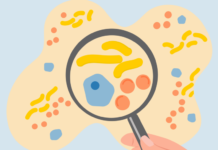NEW DELHI– Australian scientists have uncovered crucial genetic distinctions in how depression manifests in women and men, a breakthrough that could lead to more personalized treatments for one of the world’s most widespread mental health disorders.
The study, published in Nature Communications, found that genetic factors play a stronger role in depression risk for females than for males. Researchers at the QIMR Berghofer Medical Research Institute discovered nearly twice as many genetic “flags” associated with depression in women’s DNA compared to men’s.
“We already know that females are twice as likely to suffer from depression in their lifetime than males,” said Dr. Brittany Mitchell, Senior Researcher at QIMR Berghofer’s Genetic Epidemiology Lab. “And we also know that depression looks very different from one person to another. Until now, there hasn’t been much consistent research explaining why depression affects females and males differently, including the possible role of genetics.”
The team identified about 13,000 DNA variations linked to depression—around 7,000 shared by both sexes and an additional 6,000 found exclusively in females. The study also revealed that in women, genes linked to depression overlap more strongly with those associated with metabolic traits.
“We found some genetic differences that may help explain why females with depression more often experience metabolic symptoms, such as weight changes or altered energy levels,” said researcher Dr. Jodi Thomas.
The large-scale global study analyzed DNA from hundreds of thousands of individuals, including roughly 130,000 women and 65,000 men diagnosed with depression. The genetic variations identified were inherited, meaning they were present from birth and not caused by life events or environmental factors.
Traditionally, most clinical trials and drug research have focused primarily on male participants. Dr. Mitchell and Dr. Thomas said their findings underscore the need for more inclusive research and sex-specific approaches to mental health care.
“Unpacking the shared and unique genetic factors in males and females gives us a clearer picture of what causes depression—and opens the door to more personalized treatments,” Dr. Thomas said.
The researchers hope the findings will encourage the development of therapies tailored to biological and hormonal differences between men and women, offering a more precise approach to tackling depression worldwide. (Source: IANS)














